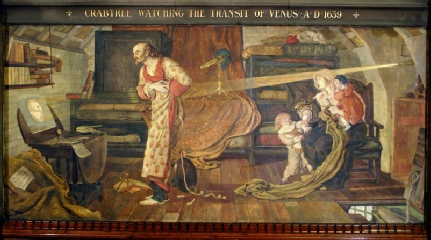Friends of Hastings Cemetery

A small volume of his poems, Psyche’s Interludes, was published in 1857 but did not attract great attention. He was most successful as a translator of Dante’s Divine Comedy: although his version (published in 1852) was eclipsed by those of Longfellow and Cary, it was the only one of the three to retain the metre and verse-
He (and other members of his family) was close friends with the Rossetti family throughout his adult life. A rather scholarly and unworldly man, with little care for appearance, he was sometimes nicknamed by them the “wombat”.

The painter Ford Madox Brown used him as the model for an eighteenth-
William Rossetti described him as having “a very large cerebral development, dark hair and eyes, ruddy cheeks, and fairly regular
features -
a furtive sort of way. To laugh was not his style. Cayley's costume was always shabby and out of date, yet with a kind of prim decorum in it too. His manner was absent-
In the early 1860’s he and the poetess Christina Rossetti, Gabriele Rossetti’s daughter, fell in love. There were two impediments to their marriage: one was financial, but Christina’s brother William Michael Rossetti (a successful civil servant and art critic) offered to give them an allowance.
The bigger obstacle was Charles Bagot Cayley’s agnosticism: Christina Rossetti was a devout high Anglican and felt she could not marry someone who did not share her religious sympathies. Nonetheless they remained devoted to each other till his death. Several of Christina’s poems were about their love, and one -